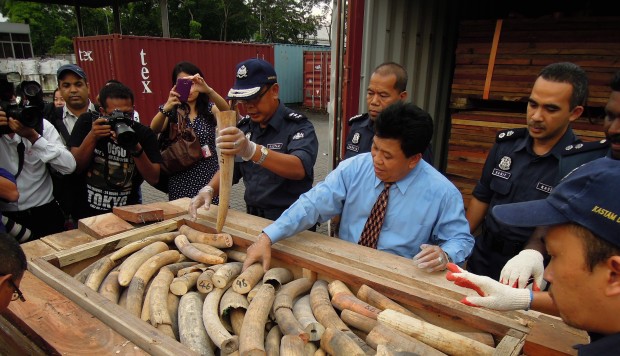WWF exposes loophole in Singapore ivory trade laws that allows illegal trade to prosper

Just a few days later, the World Wide Fund for Nature Singapore revealed that Ivory Lane was a publicity stunt to raise awareness about a key shortcoming in the country's wildlife laws - ivory that entered the market before 1990 is still permitted for sale Despite the common perception that the sale of ivory is banned in Singapore, there are still more than 40 bricks-and-mortar shops in Singapore as well as online stores that sell ivory products, with many claiming that they sell pre-1990 ivory While Singapore's domestic market may seem small, it creates a loophole that could continue to fuel the international illegal ivory trade, despite the recent ban on all local sales of ivory in China, Taiwan and Hong Kong by this year, 2020 and 2021 respectively.
"Recently poached ivory could masquerade as vintage ivory," says Elaine Tan, chief executive officer of WWF Singapore "It takes lab testing to determine the age and source of ivory The onus lies with the buyer to establish the legality of the ivory piece before it is bought, and lab tests are not available to the man on the street.
In addition, one cannot rely on the assurances of the vendor - or the appearance that the sale outlet appears 'respectable' - as an indication of the legality of the ivory in question In many places it is easy to buy ivory of illegal origin that has originated from recently poached elephants." As Singapore is a globally connected hub, it inadvertently facilitates shipments of illegal ivory trade around the region, says Tan "People from China are purchasing ivory mainly as tourists in Vietnam and Laos.
Vietnam has technically banned sales of ivory since January, but has not enforced its new penal code with regard to ivory yet," he says. . Source